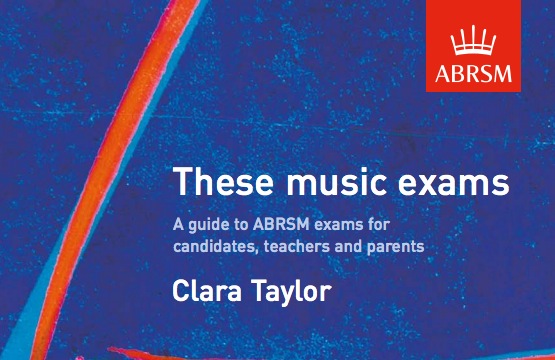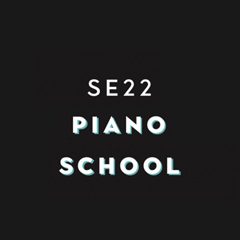This information will be emailed to all students in our March newsletter.
The final exam session of 2015 takes place in June and July 2015. Your teacher will advise before Easter if you are on-target for exam entry but I thought it would be useful to list the criteria that we use to determine readiness for examinations. We only enter students for exams when they are well-prepared and confident that they are practising and playing to the best of their ability.
We use the following as a guideline to assess readiness:
1) Lots of Experience of Performing in Public
This is vital to build confidence and steady the nerves as you will be in the exam room on your own with the examiner so it’s important to feel able to cope with the pressure. One public performance alone will not be sufficient – how about getting together with a group of students that are also sitting exams and hosting informal performance opportunities at each other’s houses on the weekend? Email me if you would like to participate in this and I can pass on email addresses of students sitting exams.
You should be regularly performing all your pieces to your family and friends. Make an occasion of it so that you feel under pressure as this will mimic the exam scenario. You can also record the performance of your pieces and try to get them as good as you can in one take as you only get one chance to play them in the exam. Whatever happens – just keep going! Try not to restart – keep moving forward. Also ask your school music teacher if you can play in assembly or in your music class. This is excellent preparation and most schools are happy for you to do this.
We also provide termly performance opportunities including Scale Competitions, Masterclasses and the Dulwich Piano Festival. See our Events page to sign up for upcoming performance opportunities.
All students sitting a Summer exam will perform their three pieces at the Dulwich Piano Festival in June. This has been timed to take place before the exam session so it will be the perfect opportunity to showcase all your hard work. You can enter one piece in the graded exam class, and then you can enter all three exam pieces in the Under 18 Recital Class.
2) Able to Play all Exam Requirements to a satisfactory level
There are various elements of the exam, not just the pieces and scales. You must be incorporating sight-reading and aural practice into your daily routine. We have lots of helpful tips, information and charts to help you prepare for your exam. Students that are only focussing on scales and pieces will take longer to be ready for the exams. The sight-reading and aural parts of the exam combined are worth over 20% of the exam mark so they must not be left until the last minute. As of March, students should be able to play at least 2 of their pieces to exam standard and be progressing well on their third piece. All scales should be approaching memory-standard with fluency and accuracy.
[Read Our Daily Practice Guide]
Listen to your pieces on Youtube
All your pieces are available to listen to on Youtube – just type in the name and composer and you will see lots of videos for your songs. Do you know where the louds and softs are, how fast or slow to play, whether you need to speed up or slow down anywhere? Do you know the character of your piece? Is it lively, melancholy? Listening to various recordings online can help assist learning of a piece. Your teacher will also play your piece to you regularly. Do your homework and make sure you have read the footnotes, looked up the composer (are they dead or alive, where are they from, what else did they write) and know the meaning behind the title of the piece.
Yohondo has a great YouTube channel with step-by-step help on some of the graded pieces: https://www.youtube.com/user/YohondoYT
Aural practice
This must be part of your daily practice for exams as this will help greatly with the aural section. There are several online resources or apps you can use to practice this every day.
Hofnote
Free Aural Tests
ABRSM App for iPhone/iPod/iPad
Sight-Reading
Sight-Reading is worth 14% of the marks – as much as the entire scale book! Keep working through the Specimen Sight Reading tests for your grade. If you have an iPad, then the excellent ABRSM sight-reading app is available for your grade.
ABRSM SightRead4Piano by Wessar
Scales
Ask your parents or friends to test you on the scales in a random order. Or you can make a ‘scale pot’ where you write out the name of every scale, broken chord, arpeggio etc and put these into a pot. Take one out of the pot and practice it until the pot is empty! As always, this must be done every day. We give all our students practice charts for their scales. These should be filled in daily – aim for ticks in all the boxes! Print a fresh chart each week. Students that work hard at their scales usually see a great improvement within just a few days. Practice your scales in random order so that you’re not always starting at the beginning of the book.
3) Mock Examination
Before the exam entry deadline, we ask that you have sat a mock exam with someone that is not your teacher so that we can recreate the exam setting. Students must be able to pass the mock exam before entry will be made. Ensure you have booked your mock exam well in advance of May the 2nd so that you have the time to re-sit the examination if required. If you do not pass the mock exam, we can discuss the next steps with you. We always advise waiting until fully-prepared and trying to achieve a solid pass (or higher) instead of just scraping a pass, as this will not indicate readiness to move on to the next grade. Email Lorraine for mock exam booking information.
4) Important Dates
Entry Deadline: 1st of May
Exam Date: 15 June to 18 July
Please note that you cannot specify for certain dates to be avoided but you can call the exam board to change the exam time if it is not convenient:(0)20 7636 5400. You will be allocated your exam date approximately three weeks before the exam. Be ready for examination from 15th June onwards.
5) These Music Exams
A comprehensive guide to music exams is available online. The guide is aimed at both parents and exam candidates.

